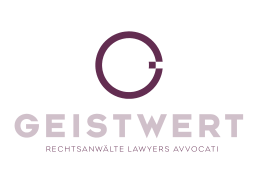Brexit – What does it mean for your IP/IT?
The UK’s people have voted, but it will be a long time before Brexit is effectuated . Let´s see… Anyway, what would that mean for your IP/IT? Here is a very first analysis in a nutshell:
Patents
Good news first: Nothing will change for European Patents (EPs). EPs are not under the EU regime, but the European Patent Convention (EPC); the European Patent Office is no EU institution. Thus, EPs designating Great Britain will continue to be valid and enforced in the UK.
As for the Unitary Patent, its fate is unclear. The UK was about to ratify the relevant Agreement regarding the Unified Patent Court – including also one court in London -, but that is hardly likely to happen now, although this would put the Agreement and the Unitary Patent Regulation into force. So, the remaining member states will have to negotiate a modus operandi to have the Agreement and the Regulation enter into effect. Well, also here, there’s at least a glimpse of good news: The Unitary Patent legislation is not yet in effect in any country; there are no Unitary Patents being applied for or granted.
Trademarks and Designs
Trademarks are protected in the UK either by national UK registrations or EU-trademarks. For the former nothing changes, naturally. For the latter, once Brexit would enter into force, EU-trademarks would cease to have effect in UK. However, it is very likely that a transitional provision would be in place by then for the conversion of the UK part of the EU-trademark into a national UK trademark. However, it is very likely that this “conversion” would be subject to a fee.
However, even then many legal questions would have to be solved, e.g. the issues of genuine use, in particular if the five years’ use period survives through the conversion, but there is no genuine use in the UK.
To be on the very safe side, applicants should consider filing national UK trademarks already in the near future.
Same applies mutatis mutandi to designs, i.e. national UK designs and Registered Community Designs.
Data Protection / Privacy
The General Data Protection Regulation will come into force within the EU on May 25, 2018. As long as the UK is a member state to the EU after that date, the Regulation is applicable also to citizen/enterprises within the UK. That means that also the provision of fines for breaches applies, which is 4 % of the global turnover or EUR 20 Million – whichever is higher.
However, it remains unclear if the UK will keep up with the data privacy standards of the EU. Currently and under the regime of the new Regulation, companies (in the wording of the Regulation: data controllers) may only transfer personal data outside the EU to a third country, (simplifying) if this country is regarded as a “safe third country” by the European Commission.
So the question arises: Will the UK be regarded as such a “safe third country” after Brexit? If not, this would have a major impact on EU-UK transfer of data.
Copyright
There is no unified EU-copyright, but UK Copyright law is in many factors harmonised by several EU directives. This legal level could remain in place as long as the UK legislator does not pass otherwise.
IP Agreements
The issues will be manifold – too manifold to just touch upon here. Just as a starting point: What happens with referrals in agreements to EU law?
Contract drafting will currently require a “Brexit Clause” for international contracts.
Court Decisions
Upon effectiveness of Brexit a court order of a non-UK member state having pan-EU effect would cease effect in the UK. UK courts (e.g. enforcement courts) might have to disregard any such court order.
